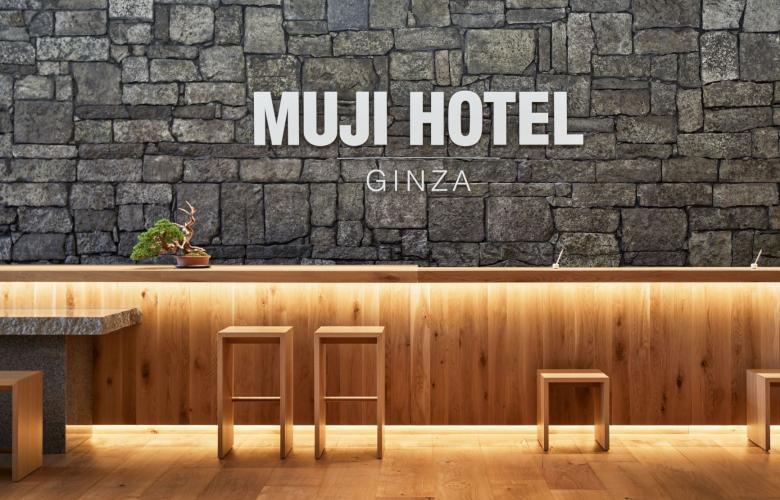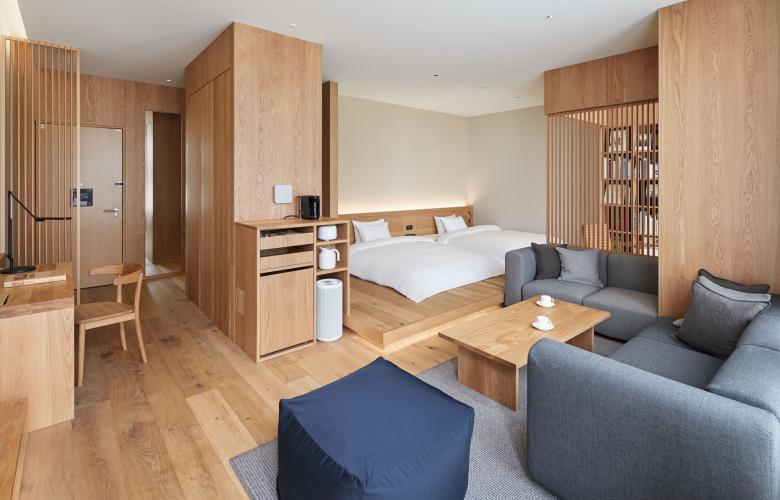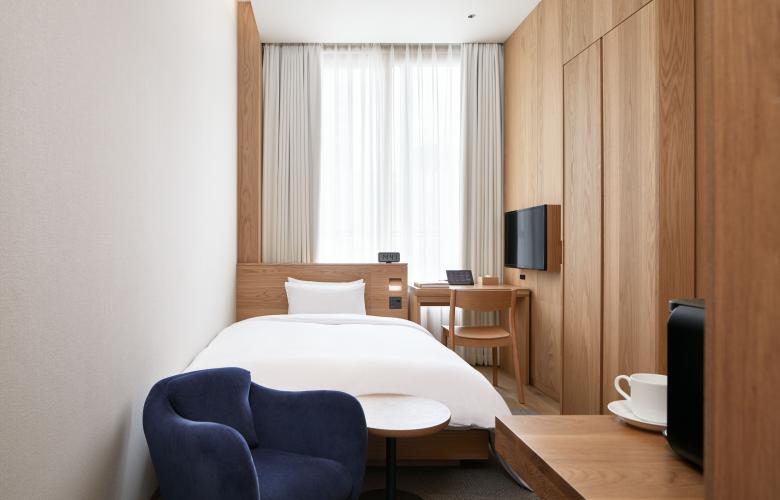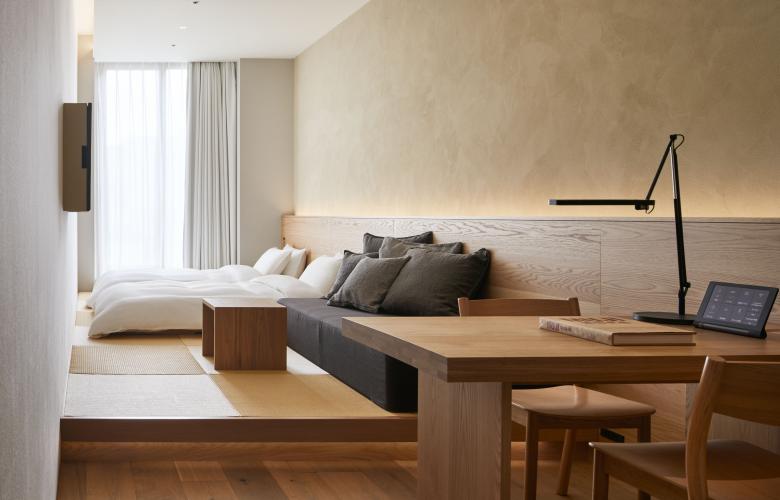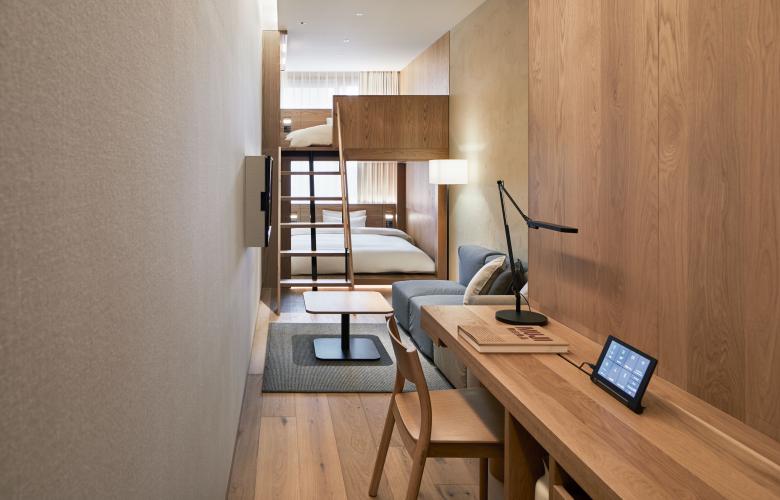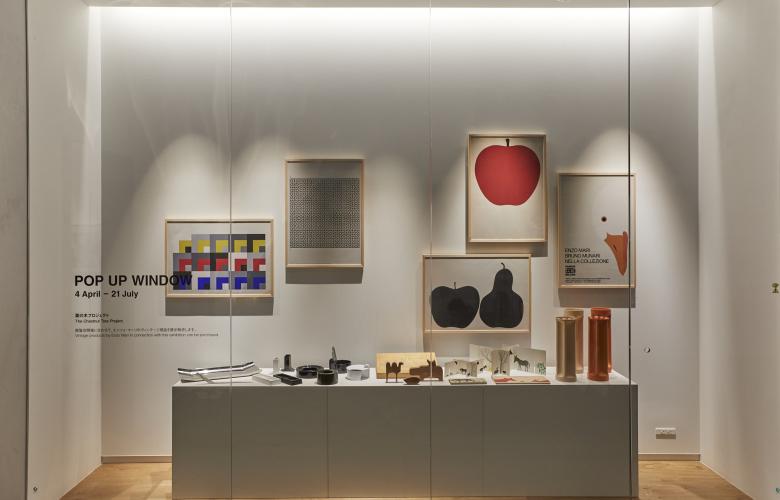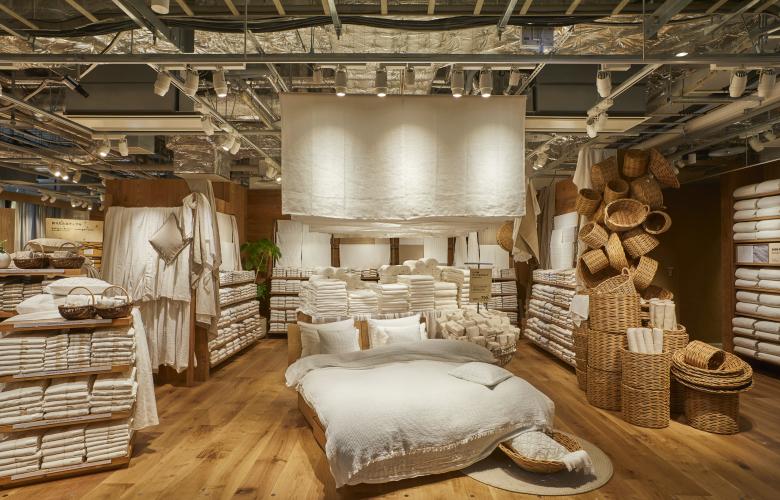On April 4, 2019, the iconic ‘anti-label’ label Muji opened the doors to their newest project, Muji Hotel Ginza. More than just a place to rest, the new outpost is a mega flagship store, gallery, hotel, restaurant and creative hub all in one.
It’s the company’s debut domestic hotel, a follow-up to hotels in Beijing and Shenzhen, China, both of which opened last year. While its meticulously designed products and welcoming dining facilities are like what you’ve come to expect from the brand, the hotel is doing things a little differently; exploring new territory and crafting new precedents in the accommodation industry. Here’s all you need to know.
Rooms, what to expect
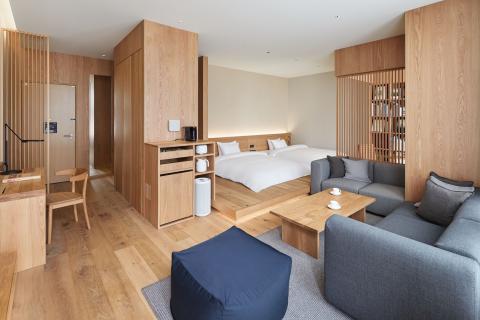
The hotel’s 79 rooms, which take up levels 7F to 10F of the monolithic complex, come in nine different designs, simply titled ‘Type A’ to ‘Type I.’ Compact and elongated, but with the minimalistic Muji style working to their advantage, each room feels a lot bigger than its square meterage. The smallest of the rooms are ‘Type A’ a conservative but stylish semi-double studio-style space that’s between 14–15 m2. The largest is twin room ‘Type I’ that occupies a whopping 52 m2 and features a personal library full of books about design, a living room space, and a tatami-mat reading nook.
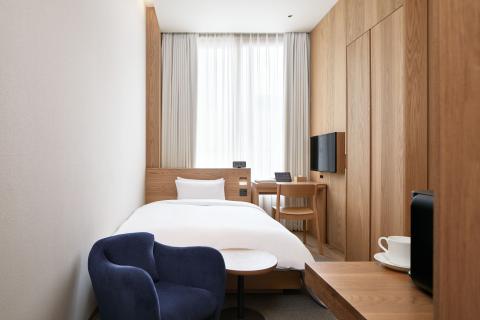
Each of the rooms features a slightly different layout, suitable for a range of different travelling groups. The two other room standouts are ‘Type G’ — a four-person bunk bed–style room, and the classically inspired ‘Type F’ twin room which boasts a modern-style tatami mat elevated platform for the beds.
As you would expect rooms are stocked with Muji products, from the furniture and linen and down to the complimentary snacks. Some of the items and devices used in the hotel rooms can also be purchased at the Muji store. Plus, if there are any Muji products you want which you can’t find in your suite, the hotel staff can deliver it straight to your door.
Environmental ethos
Bathed in soft glowing natural light, each of the breezy, streamlined rooms are finished with natural hardwood floors (and the occasional tatami mat). While the linen, bathrooms and features are painted in muted neutral colours and combined with organic wooden textures and stone, a material which features most heavily as the check-in desk’s back wall.
In fact, a large portion of the stone sourced for the hotel comes from recycled materials, some of which in a previous life were old paving stones from Tokyo’s old trolley-way system. Other parts of the hotel were crafted from recycled ship debris.
In conjunction with the opening of the hotel, Muji also announced that the Ginza outpost will be switching out all their plastic bags for paper ones. It’s not necessarily groundbreaking on a global perspective, as many nations have banned the plastic bag outright. However, in the plastic-heavy Japanese retail scene it’s a start, and Muji's promise to implement the paper-bag system globally will help set a sustainable-living precedent for other Japanese lifestyle competitors.
Muji’s fixed price guarantee
Prices sit somewhere between a business hotel and luxury hotel depending on what you’re after. They have consciously positioned themselves as an affordable alternative to the more expensive luxury hotel options on the market. Costs start at JPY 14,900 for ‘Type A’ the smallest room, while a night in ‘Type I,’ the most expensive room, will set you back JPY 55,900.
In another notable move that’s so very Muji, the hotel promises that the cost of the rooms will remain inflation-free and stay the same rate throughout the year, regardless of holiday seasons, weekends, and of course the upcoming Rugby World Cup and 2020 Olympics.
A social experimentation lab
For Muji, the hotel is an impressive addition to the portfolio and looks to be another unique, and immersive way to enjoy the lifestyle giant's products. However, the Ginza flagship store and the hotel are for the company more than just another commodity.
The hotel will also be a testing ground for Muji designers and creators. According to Satoru Matsuzaki, president of Ryohin Keikaku (the company that owns Muji), it’s a place for the brand to develop and trial new lifestyle products, experiment with fresh ideas and expand the Muji influence beyond the everyday consumer goods.
The store and hotel’s on-site galleries are an excellent example of this potential experimentation. Located opposite to each other, divided by an escalator, these humble in size, but not in concept art spaces will be host to a rotating roster of exhibits which will explore and consider the possibilities of the future through functional art and design.
What else is there?
Beyond the hotel itself, the store is well worth visiting, but be warned, it’s entirely possible to lose a good portion of an afternoon inside.
Also on the 6F hotel space, is where you’ll find the Atelier Muji Ginza, a multi-purpose facility dedicated to design and culture, and traditionally influenced Japanese restaurant WA.

The Atelier is a tranquil little hideaway; it’s home to the gallery spaces as well as a public, communal Salon space that serves coffee and drinks until 20 am; a Library stocked with books related to design and arts; and a Lounge which will be used for special events and workshops.
Heading downstairs, levels 5F and below is the new, supersized Muji flagship store. As well as having everything you’ve come to expect from most Muji outlets, there’s also a Bento Store, Juice Stand, Aroma Bar, on-site Styling Advisor teams, a Diner, Tea Blending Service, a Bakery (serving fresh bread and pastries daily from 7:30 am), and a grocery store selling vegetables sourced from local farmers.
The area, Ginza
It may seem on the surface that the famously label-adverse brand is setting up shop in the label-obsessed Ginza. But given the hotel creators’ ambitions, it’s perfect for a multitude of reasons.
To begin, Ginza is a neighbourhood not unfamiliar with the world of excellent design. Galleries like Design Gallery 1953 in the area’s Matsuya department store have been blurring the lines of lifestyle, retail and art for a while, so the territory has been tried, tested and successful. The recent opening of mega shopping complex Ginza Six by the art world involved Mori Building Company, just another example.
What may be most intuitive however is the positioning of the hotel within a landscape filled with luxury accommodation. Design-wise the hotel is far more upscale than your regular business hotel, but the starting room price is comparable. Much like the brand’s products themselves, the hotel trends the relatively unclaimed territory between necessity and luxury, but with a respected sense of pragmatism.
It’s functional, well designed, and comfortable, but not lavish and over the top. It’s the embodiment of the Muji ethos and one that’s treated them well in the past with their retail outlets, so we can only expect a similar trajectory with this venture.
Muji Hotel Ginza | 3-3-5 Ginza, 6F, Chuo-ku, Tokyo
By Lucy Dayman
Similar to this:
How to furnish and decorate a small Japanese apartment
Japanese furniture retailers: Embracing the aesthetic
MUJI releases new tiny home design

